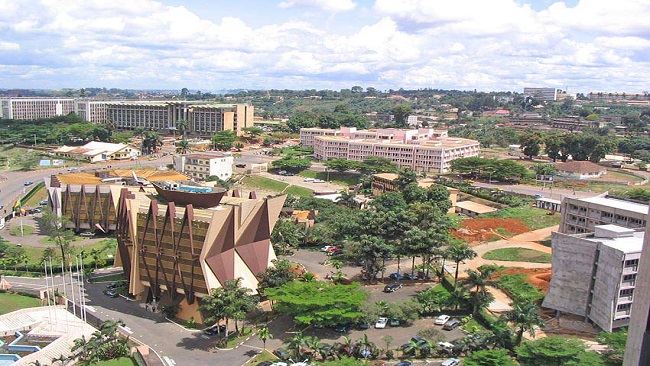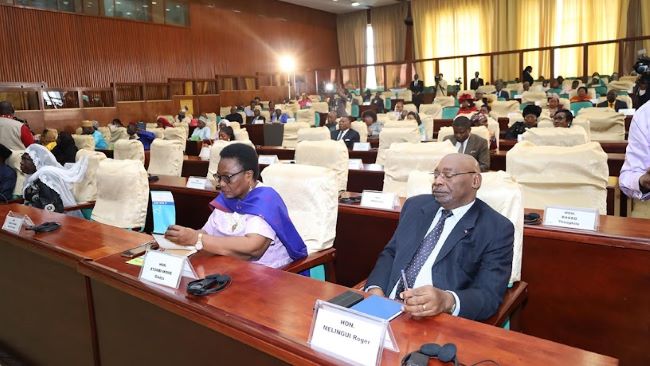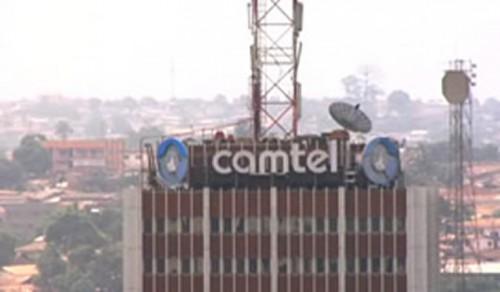17, November 2024
Fitch Keeps Cameroon at ‘B’ with Negative Outlook 0
Fitch Ratings has affirmed Cameroon’s long-term foreign currency issuer default rating (IDR) at ‘B’ with a negative outlook. In a note, Fitch revealed that the negative reflects political risks related to potential succession issues and structural weaknesses in public finance management (PFM).
This is evidenced by weak liquidity management, late external debt payments, and accumulation of domestic arrears, according to the rating note. Cameroon’s ratings are supported by its resilient GDP growth, a manageable debt maturity schedule and expectations that moderate budget deficits and debt levels will be supported by non-oil revenue mobilization and spending restraint.
Analysts added that this is balanced against low GDP per capita, weak governance indicators, and persistent security challenges. The 92-year-old President Paul Biya, in power since 1982, will likely run in the presidential election, scheduled for October 2025, Fitch said.
The rating note stated that social and political tensions could increase in the run-up to the election, increasing concerns about Cameroon’s political stability, policy continuity and commitment to reform – which underpin bilateral support.
The lack of a succession plan and political divisions and rivalries within the ruling party exacerbate the risk of a disorderly transition of power. The rating note revealed that the country’s weaknesses in budget planning and execution, and debt management weigh on the rating.
The government’s exceptional spending procedures remain high, albeit declining, due to constant unexpected security spending and liquidity pressures. PFM weaknesses are evidenced by occasional late external debt service payments.
It was revealed in July that Cameroon was late in making external debt payments to one commercial creditor in March 2024. Moreover, in 2024, Cameroon has cleared XAF467 billion of domestic arrears using proceeds of a private placement issuance and resources lent by Afreximbank.
“We see continued risk of arrears accumulation given a projected financing shortfall”, Fitch Ratings said amidst country’s tight finance.
In 2004, Cameroon is unlikely to obtain budgeted financing from the World Bank of USD200 million, due to delays in implementing structural reforms, Fitch stated.
Analysts explained that the projected shortfall in financing will be compensated by spending cuts. The funds could be disbursed in 2025, but the electoral context may further slow reform implementation.
“Nevertheless, we expect Cameroon’s funding needs will be covered through the existing IMF programme, ending June 2025, and official creditor support tied to the completion of the reviews”.
The government will also rely on the regional bond market.
Fitch baseline assumes strong support from official creditors will continue over the medium term, with a potential renewal of the IMF programme in 2026, which is key for the financing plan. Cameroon has limited fiscal room, and fiscal consolidation is being driven by spending cuts, mainly on capex under-execution.
“We forecast the fiscal balance on a commitment basis will shift to a surplus of 0.1% of GDP in 2024, remaining broadly stable in 2025-2026.
“Oil revenues will decline due to lower oil prices and production, but non-oil revenues will continue to improve through revenue mobilisation measures, tax exemptions reduction, and improvement in tax and customs administrations”.
Fitch also forecast the fiscal deficit on a cash basis to widen from 0.4% of GDP in 2023 to 1.6% in 2024, as net repayment of arrears is expected at 1.7% of GDP at end-2024.
“We expect the cash deficit will decline to 0.7% of GDP in 2025 and 0.6% in 2026, although the pace of net repayment of arrears casts uncertainty on the fiscal trajectory”. The government is committed to reduce fuel subsidies, increasing retail petroleum prices in 2024 by 15%, after a 21% rise in 2023.
However, given the importance of social stability and the presidential election, we assume the government will not increase petroleum prices in 2025, delaying the phasing out of fuel subsidies.
“We estimate fiscal financing needs, at 5.7% of GDP in 2024, will decline to 4.7% of GDP in 2025, owing to lower cash deficit and arrears repayment. We project fiscal financing needs will increase to 5.4% of GDP in 2026 as domestic debt amortisation will amount to 2.6% of GDP after 2.1% in 2024.
“External debt amortisation will increase from 2.0% of GDP in 2024 to 2.1% in 2025 and 2.2% in 2026, including Eurobond payment at 0.1% of GDP per year”. Fitch project GDP growth and moderate cash budget deficits will maintain government debt on a declining path from 41.7% of GDP in 2023 to 36.3% in 2026, below the ‘B’ median forecast of 56.4%.
Also, analysts expect real GDP growth to increase to 3.7% in 2024 from 3.2% in 2023. “We forecast growth at 4.0% in 2025 and 4.1% in 2026, driven by agriculture, construction, and the coming on-stream of infrastructure and electricity projects, below the ‘B’ median forecast of 4.7%”.
Downside risks to growth stem from geopolitical uncertainties leading to renewed commodity price volatility, supply chain disruptions, and inflationary pressures. The 2025 presidential election threatens reform implementation and increases security and social risks.
Analysts forecast the current account deficit (CAD) to narrow from 4.1% of GDP in 2023 to 3.6% of GDP in 2024 owing to higher cocoa prices supporting exports. Fitch projects the CAD will fall to 3.2% of GDP in 2025-2026, as the decline in oil production will be offset by the implementation of the import substitution policy, while exports will increase thanks to stronger agricultural production.
Source: dmarketforces





























19, November 2024
Yaoundé: CONAC flags corruption, production of fake certificates as most worrying issues 0
Cameroon’s National Anti-Corruption Commission (CONAC) has flagged corruption and the production of fake certificates as two of the most worrying issues plaguing the country’s higher education system.
At a campaign at the University of Yaoundé II to educate and sensitise the university population on the consequences of the production and use of fake certificates in Cameroon and abroad on 5 November 2024, the chairman of CONAC, the Reverend Dr Dieudonné Massi Gams, underscored the dangers of corrupt practices and falsification of certificates. This has become endemic in higher education institutions in the country, actions not compatible with head of state President Paul Biya’s policy to promote good governance as pathways towards economic emergence by 2035.
“The university should be a place to promote academic excellence as recommended by the Head of State, Paul Biya, and not academic forgery,” Massi Gams said at the University of Yaoundé II campaign.
The campaign to fight against fake certificates and corruption in universities for the 2024-25 academic year which started on 25 October 2024 at the University of Yaoundé I, comes against the backdrop of reports of several cases of graduates falsifying certificates to secure employment in both public and private institutions as well as access to post-graduate studies at foreign universities, Massi Gams said.
“We have received several complaints from the ministry of higher education and directly from foreign universities about applicants from Cameroon with falsified transcripts, a practice that tarnishes the image of the country’s higher education system,” he noted.
Students, staff sensitised
The campaign, carried out in collaboration with the ministry of higher education, he said, targets students of higher education institutions where recruitment for various enterprises is focused, as well as the entire university community.
The campaign at both University of Yaoundé I and Yaoundé II was characterised by words of advice from the CONAC team, and messages to students and staff about the implications of using fake certificates. Examples of fake certificates were placed on billboards around the campus.
Anti-corruption billboards bearing the campaign message are planted in strategic corners of the university campuses as well as on stickers stuck on vehicles of staff and some students. The campaign will be extended to all public higher education institutions in the country as well as private universities, CONAC authorities said.
Experts said it was imperative that corruption is fought at universities in Africa in their capacity as institutions of higher education that touch the lives of future leaders, and as large organisations with substantial economic footprints.
Students welcome chance to talk
“The fight against corruption in Africa, in general, and Cameroon, in particular, should start with the training system of our future leaders. That is why the campaign against fake certificates and corruption in higher education institutions in Cameroon is very strategic,” Dr Nick Ngwanyam, director and CEO of the St Louis University Institute of Health and Biomedical Sciences, Cameroon, told University World News.
Students have also saluted the initiative which, they say, helps to bring university authorities out of their silos to openly discuss even taboo subjects like sexual harassment for marks.
“The campaign on campus was very educative and provided a rare opportunity for students and university authorities to discuss even some taboo subjects like sexual harassment,” Victoria Ebage, a law student at the University of Yaoundé II, told University World News.
Cameroon’s 2023 anti-corruption status report released in September 2024 shows that, like in other sectors, bribery and corruption have been rampant in higher education – regarding admitting candidates at public professional institutes. Merit hardly plays a role, which has opened the doors to mediocrity.
The report says that, generally, the State of Cameroon lost over CFA114 billion (approximately US$184 million) to corruption in 2023 which represents an increase of CFA109.4 billion compared to 2022.
‘Favours’ undermine credibility
Other sectors where corruption is on the rise include transport, secondary education, territorial administration, finance, telecommunication, and public works, according to the report. The 2023 report is divided into four parts, with part one focusing on measures to prevent corruption, part two on sanctions, part three on the fight against money-laundering and recovery of assets derived from corruption, and part four, on cooperation – at both local and international levels – in the fight against corruption.
The report says higher education institutions have been plagued by sexual harassment and favours for better grades. The widespread practice has severely undermined the credibility of the merit-based system. Experts have sounded the alarm that such deviant practices could hamstring the broader efforts by the government to foster quality education at higher education level. “It is difficult to obtain quality results in our universities under such circumstances,” Ngwanyam said.
Massi Gams called on students to strive for excellence and uphold integrity. He challenged them to lead in the fight against corruption in the country to guarantee a better future. “As future leaders, you are expected to shine the flag, set the example for a brighter tomorrow,” he said.
In similar message to students, the Rector of the University of Yaoundé I, Professor Remy Magloire Dieudonné Etoua, warned against the adulteration of results transcripts and birth certificates. He urged students and staff to guard against the practice, which is not only punishable by Cameroonian law, but also a deterrent to professional and intellectual development in Cameroon.
Backdoor payments common
“We have had cases of students changing marks on their results transcripts and ages on their birth certificates to gain access into professional schools for employment into the public services. These are criminal acts punishable by law,” Etoua said at the University of Yaoundé I launch.
There has been a public backlash against prevailing corruption with impunity in the country’s higher education system, especially access to higher professional institutions. On 13 August 2024, CamerounWeb reported about backdoor payments of as high as CFA30 million (about US$48,265) to gain admission into the National School of Administration and Magistracy, or ENAM, the higher education institution that trains senior administrators, magistrates and finance experts in the country.
The prevailing corruption in the admission of students to prestigious higher professional schools in the country has eroded public confidence in the higher education system, experts say. “The public has virtually lost confidence in our higher education system because corruption has taken virtually all the professional higher training institutions hostage. The power of the wallet has taken over the place of merit,” Etoua told University World News.
Culled from University World News